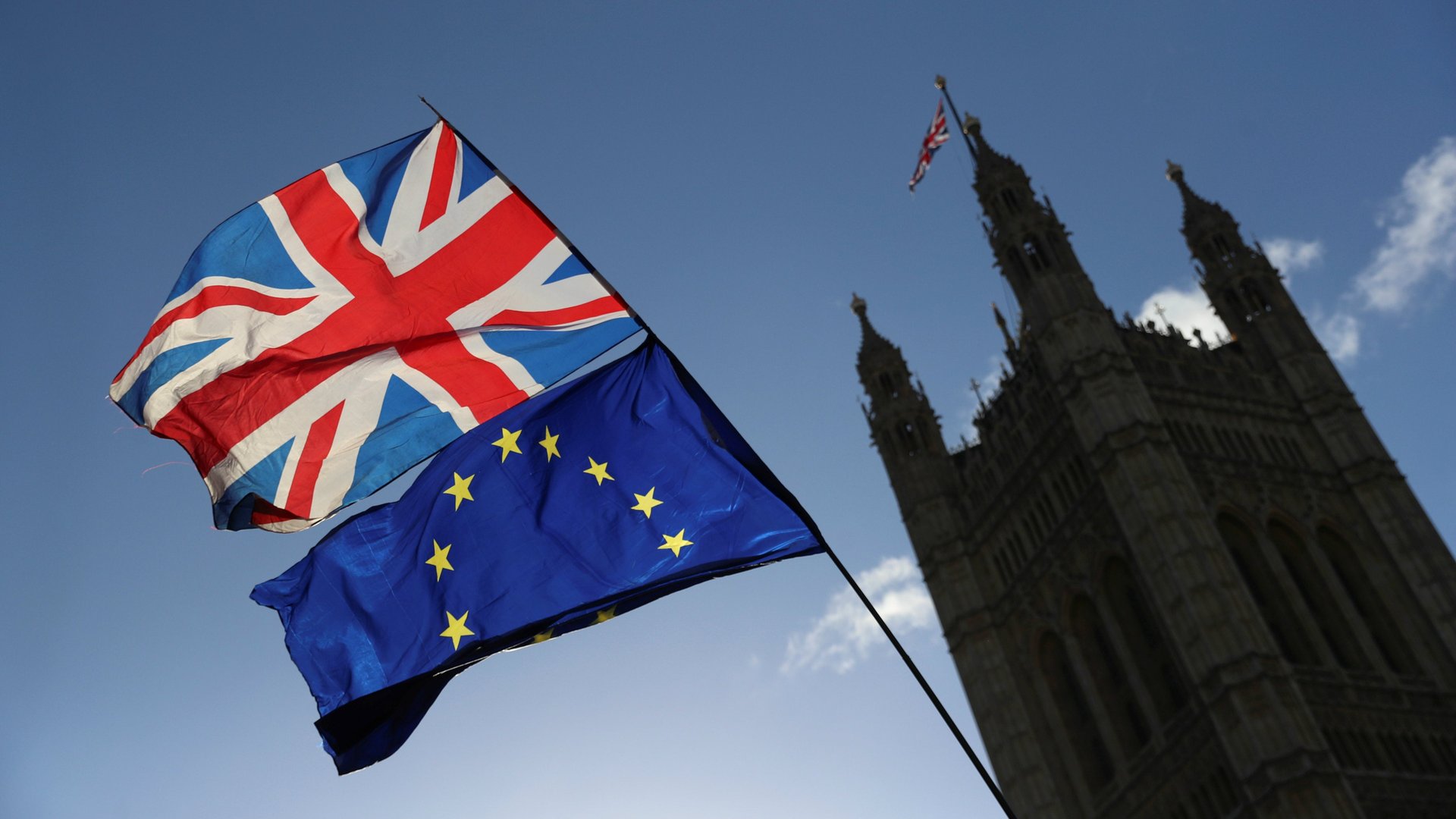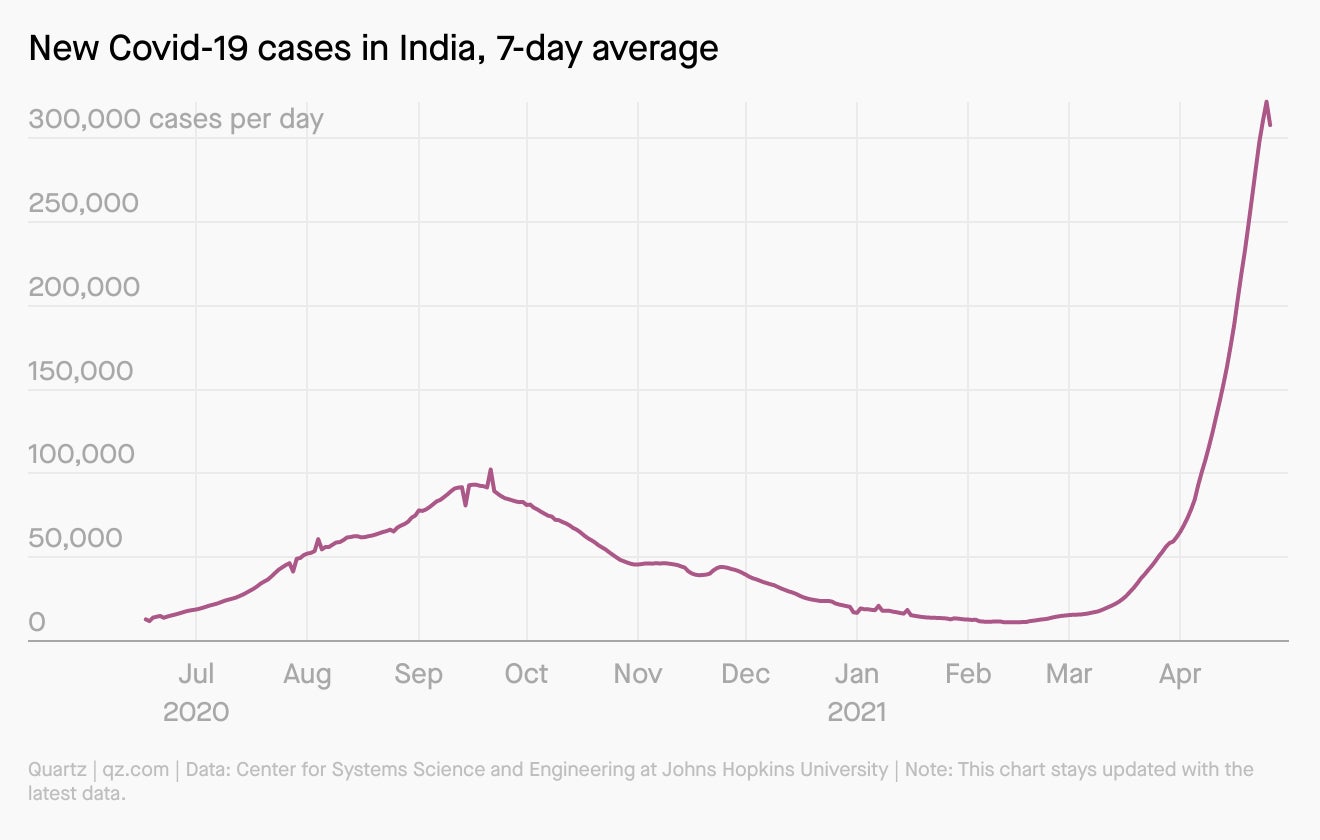UK self-driving cars, Covid-19 pill, sexy grenade
Good morning, Quartz readers!


Good morning, Quartz readers!
Here’s what you need to know
The European Union is expected to ratify its UK trade deal… EU parliament members voted yesterday on the agreement that’s key to ensuring tariff- and quota-free trade, but tensions over Northern Ireland and fishing rights remain.
…and it wants to fine or block deals by foreign state-owned firms. The new rules proposed by the European Commission don’t name a country specifically but are targeted at curbing the economic threat posed by China.
Self-driving cars could hit UK roads this year. The government said it will regulate the use of automated vehicles at speeds of up to 37 miles (60 kilometers) per hour, but more details need to be spelled out for insurers and the auto industry.
Apple and Google could face stricter regulations in Australia. The country’s competition watchdog said it may need to take action if the tech firms do not adequately address concerns about the significant market power of their app stores.
Pfizer could have a Covid-19 pill by the end of the year. CEO Albert Bourla said the treatment would combat the illness at its first sign, assuming approval by the US Food and Drug Administration after clinical trials.
US president Joe Biden will propose free pre-school. The $200 billion investment will be part of his sweeping American Families Plan, which also includes free community college, paid family leaves, and an extended child tax credit.
Big Tech earnings kicked off with a bang. Alphabet’s quarterly revenue jumped 34% to $55.3 billion, while Microsoft’s PC sales led to its biggest revenue growth since 2018.
Beijing is reportedly investigating Ant Group’s speedy IPO. The probe is focused on how Jack Ma secured listing permission so quickly last year.
What to watch for
US president Joe Biden will offer his first address to a joint session of Congress this evening (local time), marking the end of his first 100 days in office. Expect Biden to address police reform, and to trumpet his pandemic relief bill, the fact that a majority of American adults have now received at least one Covid-19 vaccine shot, and the country’s new climate target.
It’s too soon to fully assess Biden’s legacy, but his doctrine for governing is unfolding along a few key principles:
🇺🇸 America first: Under Donald Trump, that expression was a cudgel for nativism and racism. Biden is more egalitarian. But he remains focused on domestic priorities, like racial inequality and the post-pandemic economy. In the meantime, global issues like refugees and trade have taken a backseat.
🌎 Seeing the economy through a climate lens: Biden’s most high-profile diplomacy has been on climate change, culminating with last week’s Earth Day summit. He also sees climate as the country’s best shot at sustained economic growth at home, via infrastructure spending and by both competing and collaborating with China on emerging clean energy industries like electric vehicles, batteries, and carbon removal.
💪 Using the global spotlight strategically: The climate summit was a test of Biden’s faith in the US’s power to convene. The results in that case were mixed: Australia, India, and some other big emitters made no new commitments. Still, Biden has been vocal in his support for multilateral institutions like the UN and NATO.
Charting India’s ongoing crisis
Though many receive shots for free, India is perhaps the only major country in the world where citizens have the option of paying for their vaccines. In the next phase of inoculation starting May 1, state governments can decide whether they will cover jabs for people between the ages of 18 and 45.
This makes terrible financial sense, given that it is in India’s interest to halt the second Covid-19 wave for the sake of its weakening economy. As cases continue to rise, Manavi Kapur explains why the country’s vaccination program is in such disarray—and what’s at stake if it stays that way.

A manager and an employee assess the Basecamp memo
Software company Basecamp has released a controversial new memo banning political discussions on company platforms, among other changes to its culture. Quartz took each rule, as stated in the memo, and offered both a manager’s view (from Quartz at Work editor Heather Landy) and a rank-and-file perspective (from Quartz at Work senior reporter Sarah Todd).
Rule 1: No more societal and political discussions on our company Basecamp account.
The employee take: The founders of Basecamp assume that conversations about politics and society are unrelated to work. It’s a false assumption. We know, for example, that people’s racial and gendered biases get built into algorithms. Also, shutting down internal conversations on subjects like how companies perpetuate inequality is the opposite of an apolitical choice; it’s a choice to perpetuate the status quo.
The manager take: If declining to participate in political discussions is seen as a statement (in the “silence is complicity vein”) then you’re really not giving people who are uncomfortable talking about such things a fair choice to stay out of the fray. It’s true that politics and social constructs are woven through practically everything that happens in a workplace, but it’s also true that discussions about politics and social issues often veer well beyond the point at which they’re directly relevant to a business.
Read on for Heather and Sarah’s complete discussion on all of Basecamp’s new rules.
✦ You can sign up to receive The Memo from the Quartz at Work team for more updates and debates from the world of modern work, but you’ll need a membership for the full spectrum of what Quartz has to offer. Try it free for a week.
Surprising discoveries
A German bomb squad was called over a sex toy. World War II munitions still pop up from time to time, but the grenade-shaped item turned out to be a false alarm.
One Josh to rule them all. A pool noodle melee to determine the rightful bearer of the popular name ended with a 4-year-old victor in Nebraska.
Chinese wives have been feeding their cheating husbands medicine that causes impotence. The practice has led to some medical and ethical concerns.
Scientists found a small planet that’s hot enough to vaporize most metals. TOI-1431b is a rare ultra-hot planet located 490 light-years from Earth.
Walmart and ADT have logo woes. The retailer is suing Yeezy over its “spark” logo, while the home security company says Ring’s blue octagon is virtually indistinguishable from its own.
Our best wishes for a productive day. Please send any news, comments, the best Josh, and original logos to [email protected]. Get the most out of Quartz by downloading our iOS app and becoming a member. Today’s Daily Brief was brought to you by Mary Hui, Itika Sharma, Tim McDonnell, Manavi Kapur, Heather Landy, Sarah Todd, Liz Webber, and Jordan Lebeau.